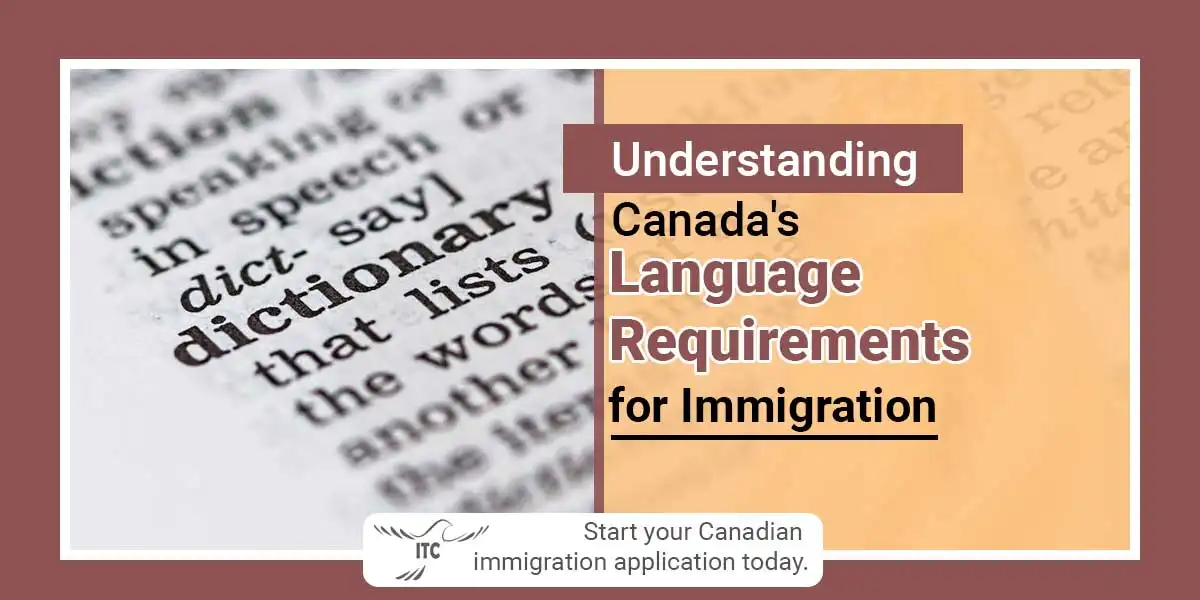Canada, known for its cultural diversity and inclusiveness, is a top destination for immigrants worldwide. A crucial aspect of the Canadian immigration process is meeting the language requirements. This article delves into the specifics of these requirements, their significance, and how potential immigrants can prepare to meet them.
Importance of Language Proficiency in Canadian Immigration
Language proficiency is essential for several reasons. Firstly, it facilitates easier integration into Canadian society. Effective communication skills are vital for everyday interactions, securing employment, and accessing services. Secondly, the Canadian government views language proficiency as an indicator of an immigrant's ability to adapt to the Canadian way of life and contribute meaningfully to society.
Official Languages of Canada
Canada recognizes two official languages: English and French. The immigration process requires proficiency in at least one of these languages. The level of proficiency required varies depending on the immigration program.
Language Testing for Canadian Immigration
The Canadian government accepts several standardized language tests to assess proficiency. The most common for English are the International English Language Testing System (IELTS) and the Canadian English Language Proficiency Index Program (CELPIP).
IELTS
The IELTS test assesses listening, reading, writing, and speaking skills. It is widely recognized and can be taken in numerous countries worldwide.
CELPIP
CELPIP is specifically designed for the Canadian context, assessing English language proficiency as used in Canada. It also evaluates the four language skills.
Language Requirements by Immigration Program
Express Entry
Canada's Express Entry system is used for skilled workers. It requires a minimum Canadian Language Benchmark (CLB) level 7 for English. Higher language proficiency can lead to more points in the Comprehensive Ranking System (CRS), enhancing the chances of receiving an invitation to apply for permanent residence.
Provincial Nominee Programs (PNP)
Each province may have different language requirements based on their specific needs. Most require a minimum of CLB/NCLC 4 to 7, depending on the occupation and program.
Family Sponsorship
Language requirements are generally not mandatory for family sponsorship. However, language proficiency can be an asset for the sponsored individual's integration into Canadian society.
Business Immigration
Entrepreneurs and investors under business immigration programs may face varying language requirements, often at a moderate proficiency level.
Preparing for Language Tests
Understand the Test Format: Familiarize yourself with the test format, types of questions, and time limits.
Practice Regularly: Regular practice can significantly improve language skills. Use practice tests to gauge your progress.
Enroll in Language Classes: Language classes can provide structured learning and opportunities to practice speaking and listening.
Use Language Learning Resources: Online resources, language learning apps, and interaction with native speakers can be beneficial.
Test-Taking Strategies: Learn effective strategies for each section of the test, such as time management and understanding how answers are scored.
Exemptions and Special Considerations
Certain applicants may be exempt from language requirements, such as those applying under specific humanitarian and compassionate grounds. Applicants with disabilities may also receive special considerations.
Tips for Prospective Immigrants
Start Early: Begin language preparation as early as possible.
Seek Guidance: Consider consulting with immigration consultants for personalized advice.
Stay Informed: Keep up-to-date with any changes in language requirements or immigration policies.
Conclusion
Meeting the language requirements is a pivotal step in the Canadian immigration process. It not only satisfies a key immigration criterion but also plays a crucial role in the successful integration of immigrants into Canadian society. By understanding these requirements and diligently preparing for the language tests, prospective immigrants can enhance their chances of making Canada their new home.
Do you want to have detailed updated information about your visa file?
You can apply for GCMS Report to recieve detailed information about your file; and/or Recieve copy of your file is in process in the IRCC
To find out if you’re eligible for immigration to Canada, simply complete our free assessment! A member of the ITC Immigration Team will review your eligibility and contact you to discuss your options!
Do you want to have detailed updated information about your visa file?
You can apply for GCMS Report to recieve detailed information about your file; and/or Recieve copy of your file is in process in the IRCC



